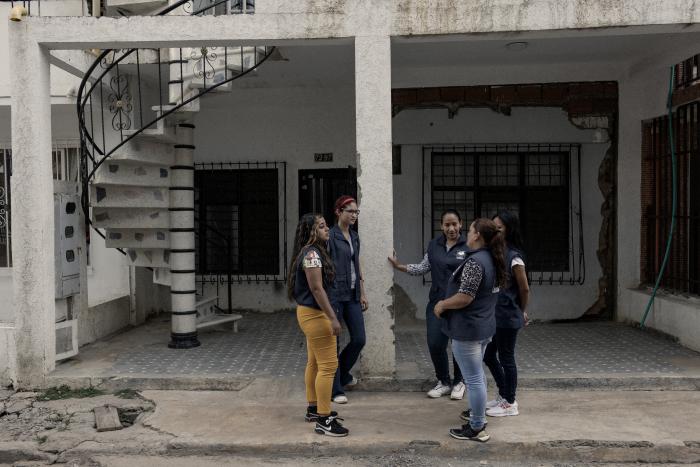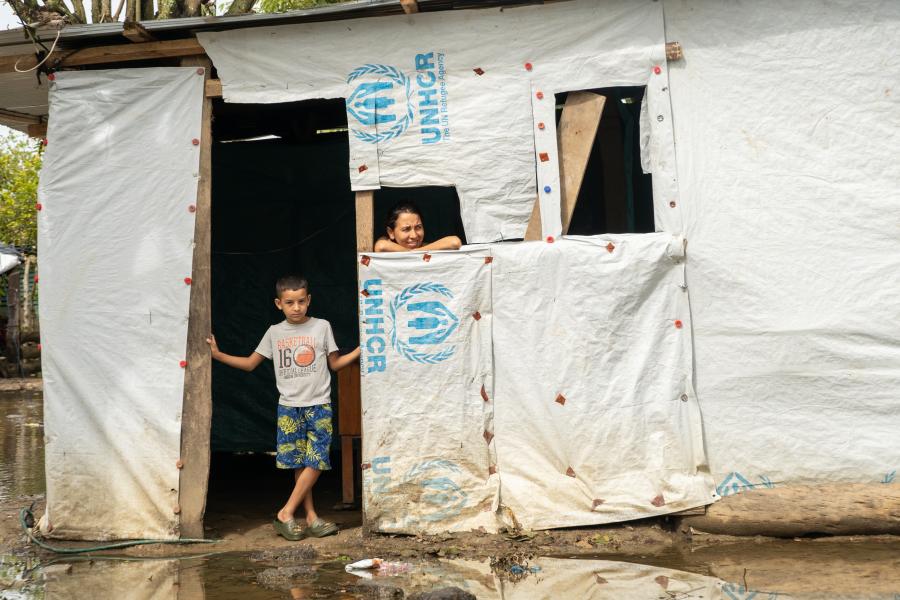2024 population planning figures
- Refugees and asylum-seekers : 87,300
-
IDPs* : 6,834,500
*Sources: Subjects of attention, Victims Registry, Unidad para la Atención y Reparación Integral a las Víctimas (UARIV).
2024 situation overview
Colombia has one of the largest internally displaced populations in the world, standing at 6.8 million at the end of 2022, with over 1 million new displacements since the signing of the Peace Agreement in 2016.
The administration of President Gustavo Petro put the implementation of the Peace Agreement, as part of its Total Peace policy, at the top of its agenda. Yet, despite advances in negotiation with the Ejército de Liberación Nacional and additional initiatives with other non-State armed groups, the humanitarian situation in Colombia continues to deteriorate. Dissidents of the peace process and other non-State armed groups have used the demobilization of the FARC and the COVID-19 pandemic to compete for territorial and social control. This has led to increases in forced displacement, confinements of communities, extortion, forced recruitment, and targeted violence. Many of these communities also host Venezuelan refugees and migrants. Colombia hosted the third largest population of refugees and others in need of international protection at the end of 2022, including a total of 2.5 million Venezuelans. Colombia has also received more than half a million Colombians returning from the Bolivarian Republic of Venezuela.
The current violence in the country has spillover effects in Ecuador and other neighbouring countries. There has been a resurgence of Colombians arriving in search of safety and international protection due to the deteriorating security situation in the southern border areas of Colombia, particularly affecting the northern provinces of Ecuador. This trend is likely to continue in the coming years.

In 2024, UNHCR will continue to strongly support the Government of Colombia to strengthen its institutional response to internally displaced people at the national and local levels to prevent displacement, provide protection and support durable solutions. Colombia has also been chosen by the United Nations as a pilot country for IDP solutions under the auspices of the Secretary-General’s Action Agenda on Internal Displacement. UNHCR and UNDP will jointly harness UN efforts and provide support to the Government through an approach that encompasses the humanitarian response, development and peacebuilding. The Action Agenda aims to find durable solutions, prevent new displacement crises and provide effective protection and assistance to those affected by displacement, particularly through the engagement of development actors, linking solutions to the country's broader development goals and strategy, and incorporating the perspectives of IDPs in the Sustainable Development Goals and UN planning frameworks. As a key durable solution, UNHCR will prioritize the legalization of informal settlements with high concentrations of IDPs.
UNHCR will strengthen emergency humanitarian response capacities in Colombia, including the network of actors that directly provide or facilitate access to protection services such as shelter support and legal assistance.
UNHCR maximizes the use of resources by applying an area-based approach in locations where the needs of IDPs and Colombian returnees coincide with those of Venezuelan refugees and migrants and/or mixed population flows. UNHCR will support and complement institutional efforts toward the socioeconomic inclusion of refugees and migrants.
In hosting countries for Colombians such as Argentina, Brazil, Panama and Peru, UNHCR will continue its efforts to ensure access to asylum, documentation, civil registries, essential services, and inclusion in national social protection systems. As in Colombia, UNHCR will apply an area-based approach for maximum efficiency.
